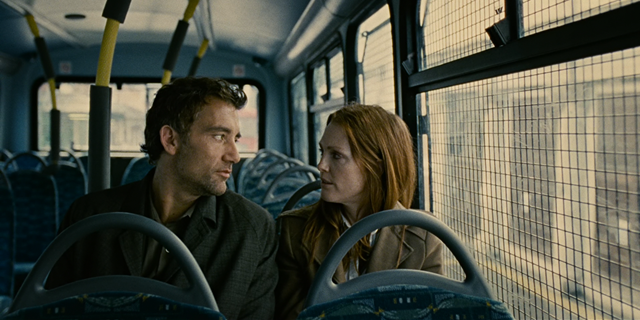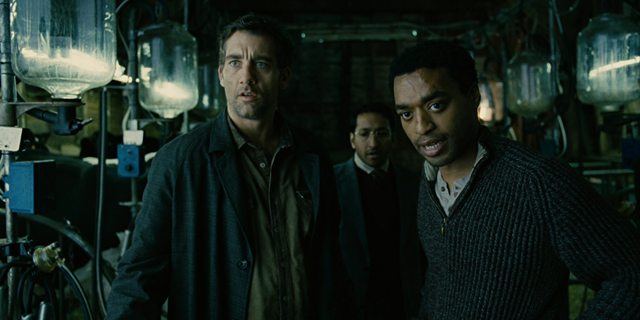
Alfonso Cuarón directed my favorite of the Harry Potter movie (Harry Potter and the Prisoner of Azkaban, 2004). He’s friends with two of my favorite directors, Guillermo del Toro and Alejandro González Iñárritu. And yet, Y Tu Mamá También has been sitting, untouched, in my Netflix list for what seems like forever, now. So, to say that I respect him and recognize his talent without really knowing him and his films would be an understatement. I still haven’t even seen Gravity. Clearly, my expertise is non-existent, but if there’s one thing about this undeniably talented, important director and his work that I can say with confidence, it’s that he made one of the best dystopian future films of all time – Children of Men (2006).
Dystopian future films have always existed as a subsection of the science-fiction genre I would say, but in recent years, the subgenre has been dominated by young adult novel adaptations in which a young heroine is in a love triangle of sorts but is also super strong and independent and role-model-status worthy. This sub-subgenre has a monopoly on dark and depressing cinematic visions of the future, not to mention the merchandising! But before all this, there was Children of Men. Also based on a novel (by P.D. James), the film is a dreary and difficult experience for those more used to lighter or at least more action packed fare of a similar subject matter. There is nothing light about this film. Even its moments of hope are doused in a kind of stomachache-inducing anxiety and unease that is difficult to shake, right through to the end– you want to appreciate the hope that is presented to our characters and to us, we want to believe in it, but the stress of turning these hopes into a more tangible reality still weighs on the characters and the audience heavily.
In that way, Cuarón has created a very mature dystopian thriller. It is eloquent, carefully paced, expertly shot, and palpably intense. The film takes place in 2027, after all the women of the world have become mysteriously infertile. Theo, played by Clive Owen, agrees to help transport a miraculously pregnant woman to a sanctuary at sea. The stakes are insane and the film is more or less unrelenting, and the violence and unrest that pop up all around them, increasing in severity and frequency as the film progresses, makes the journey an extremely tumultuous, dangerous one. But the film is never flashy. Beyond tone, it has a texture– it’s a film that is felt physically as much as it is emotionally. Cuarón knows how to make the bleak into something beautiful or at least intriguing, through his camera work alone– seemingly single-shot action sequences are of particular note here, and those shots have always haunted and fascinated me.
I cannot fairly or accurately judge the film on an aesthetic or even conceptual, intellectual level against things like The Hunger Games or Divergent. I haven’t read those books, and I haven’t seen those films. That said, Children of Men has always stayed with me and has resurfaced in my mind recently as something even more thought-provoking and sophisticated than those films could ever be, even if they are also really well made, entertaining, and thought-provoking in their own way and for their own specific demographics.
Children of Men exists on a kind of artistic pedestal for me, and I almost wish I were more ashamed of that than I am. The truth is, this film is more than a dystopic tale, and it’s not enough to say it’s a metaphor or allegory or cautionary tale, either. Because it’s also just a really riveting human drama that relies on the technical prowess and innovation and creativity and distinct stylistic choices that only Cuarón could have brought to the content and pulled off as he did. It’s a science-fiction thriller that doesn’t rely on those effects more typical to the genre in mainstream, Hollywood fare, thereby automatically bringing audiences out of their comfort zone– in more ways than one.
So, while I intend to work my way through Cuarón’s already impressive filmography, especially Y Tu Mamá También and Gravity, of course, I also feel like this film will always be one of his greatest achievements– and probably my absolute favorite film to watch whenever I’m in the mood for a glimpse into a future that seems terrifying and somewhat hopeless. At least with directors like Cuarón to test the bounds of film technology and technique in showing us these kinds of scenarios, the future of cinema itself is far less abysmal, and just as exciting.




